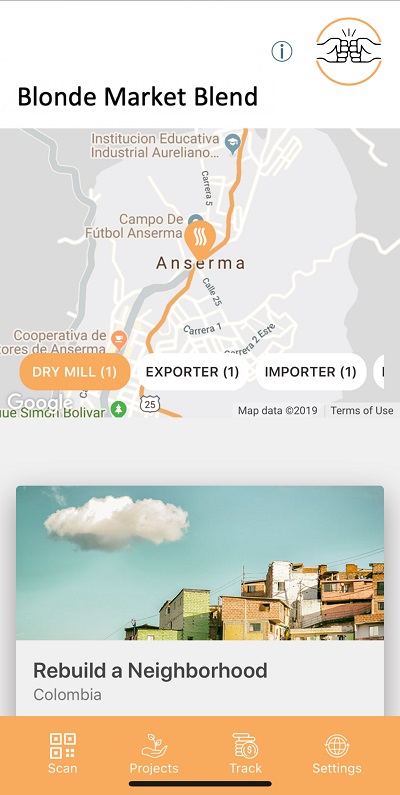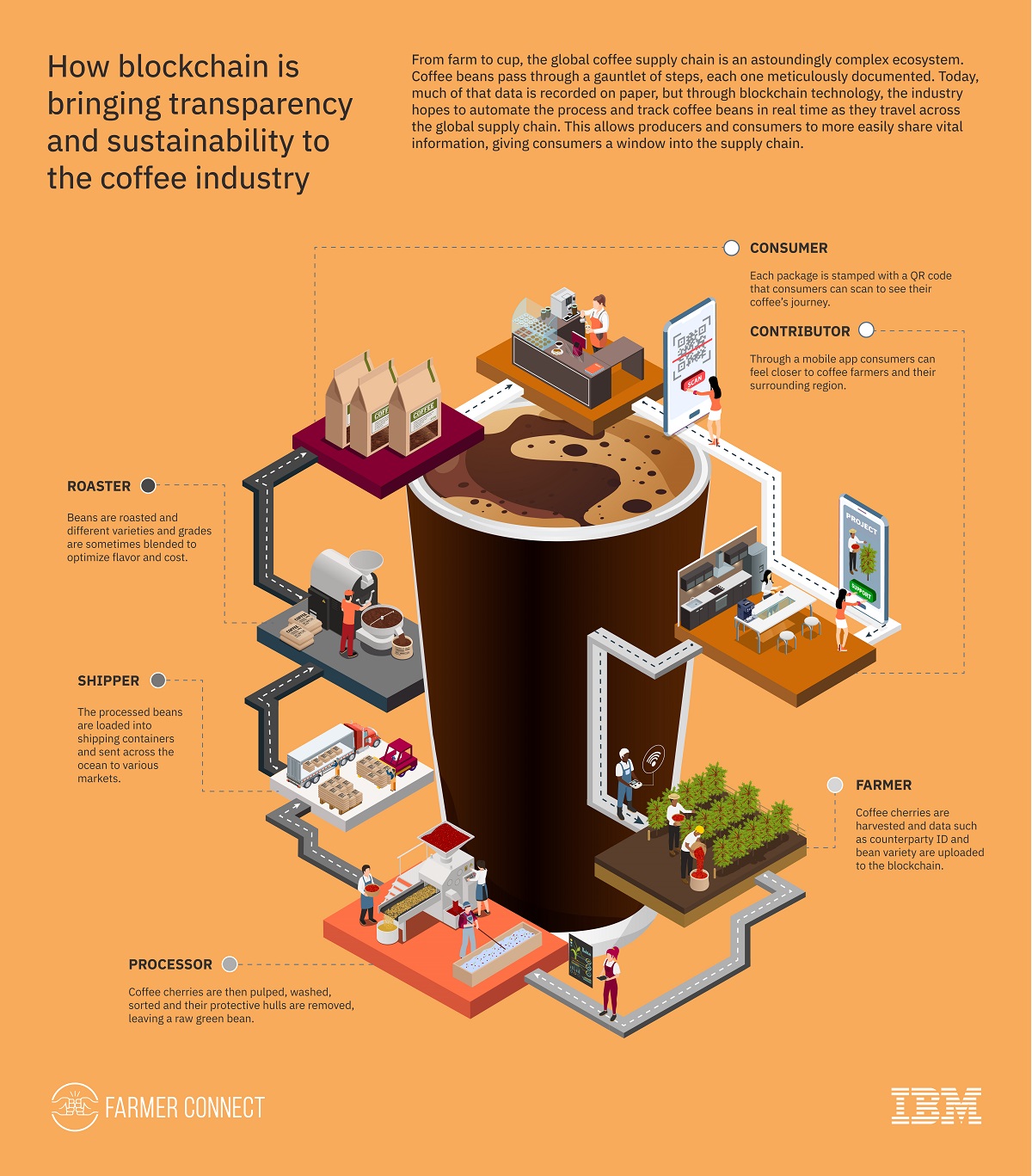IBM and coffee makers are teaming up to bring the tracking capabilities of blockchain to sourcing coffee. It will enable a new app, dubbed “Thank My Farmer” to allow coffee drinkers to trace their coffee beans back to the original farmer.
The app will let the coffee consumer learn more about their coffee and even support the farmer who grew the beans. The whole idea is to bring traceability, efficiency, fairness, and communication across the coffee supply chain which supports the $200 billion industry. IBM will show the project at CES 2020, the big tech trade show this week in Las Vegas.
IBM Blockchain helped create the Farmer Connect traceability platform, and it worked with global coffee supply chain companies including Beyers Koffie, The Colombian Coffee Growers Federation (FNC), Itochu, Jacobs Douwe Egberts (JDE), The J.M. Smucker Company, Rabobank, RGC Coffee, Volcafe, Sucafina, and Yara International.
Blockchain is the transparent and secure distributed ledger that makes cryptocurrencies possible. Since it offers secure identification for products, it helps get around problems like fraud or counterfeiting.
June 5th: The AI Audit in NYC
Join us next week in NYC to engage with top executive leaders, delving into strategies for auditing AI models to ensure fairness, optimal performance, and ethical compliance across diverse organizations. Secure your attendance for this exclusive invite-only event.
Coffee drinkers today consume more than half a trillion cups per year, and as many as two-thirds of consumers aged 19 to 24 surveyed say they prefer to buy coffee that is sustainably grown and responsibly sourced.

Above: Farmer Connect’s Thank My Farmer app.
But despite progress by international certifying bodies, there’s still a lack of knowledge and accountability around the need for coffee farmers to earn a sufficient living for bringing their product to market, IBM said.
Its large global supply chain makes coffee traceability difficult. Once grown, beans make several stops, including at coops, exporters, shippers, importers, roasters, distributors, and retailers before finally reaching the consumer. Each participant in this complex system tracks only their small segment of the journey, and each uses its own system to log data. This means that information about the product is fragmented.
Consumers hoping to close the gap between their neighborhood barista and the farmer who grew their coffee now have a solution, thanks to the blockchain technology behind IBM Food Trust.
Farmer Connect is introducing the Thank My Farmer app, a consumer-facing application that pulls information directly from the blockchain in a standardized way that can be used across the industry. It connects the user to farmers, traders, roasters, and brands. The information is presented on an interactive map, allowing each product to tell a story in a simple and scalable way. Thank My Farmer also presents sustainability projects in coffee communities and an opportunity for consumers to support them.
Blockchain technology brings all the parties in the coffee supply chain together, simplifying the exchange and tracking of information and payments, and enabling more trust. It creates a permanent digitized chain of transactions that cannot be altered. Each participant on the network has an exact copy of the data, and additions to the blockchain are shared throughout the network based on each participant’s level of permission. Farmers, wholesalers, traders, and retailers can interact more efficiently using comprehensive, near-real-time access to data, and consumers can have new insights about the origins of the products they consume.
David Behrends, president of Farmer Connect, said in a statement that the aim is humanizing each coffee drinker’s relationship with their daily cup. He said consumers now can play an active role in sustainability governance by supporting coffee farmers in developing nations. With blockchain and the consumer app, the group can create a virtuous cycle.

Above: Sucafina, IBM, and others are working on transparency in the coffee supply chain.
The new mobile application will launch to the general market at the beginning of 2020. Users in the U.S. and Canada will be able to scan QR codes on 1850 brand premium single-origin coffee. European consumers will be able to access the Thank My Farmer app through a new single-origin brand, Beyers 1769, roasted at Beyers Koffie.
As the app expands in 2020, large and small companies will be invited to join, and coffee drinkers will be able to support the communities where their coffee is grown by funding local projects. Farmer Connect is currently incorporating self-sovereign identity, a new form of digital identity built on distributed ledger technology, in collaboration with the Sovrin Foundation. This closes the loop on a circular economy to improve smallholder livelihoods while delivering transparency and a better experience for the consumer.
This work with Farmer Connect is also another example of IBM extending blockchain technology adoption across many industries and use cases, providing consumers with more insights. IBM has convened blockchain networks in areas including food safety, global shipping, trade finance, responsible mining, and many more areas.
Raj Rao, general manager of IBM Food Trust, said in a statement that the project is an example of how blockchain can be a channel for real change in how people trust the goods they consume and those who make them.
